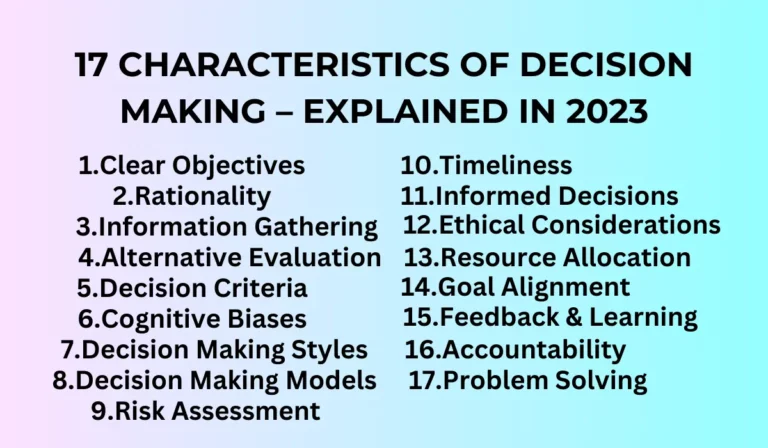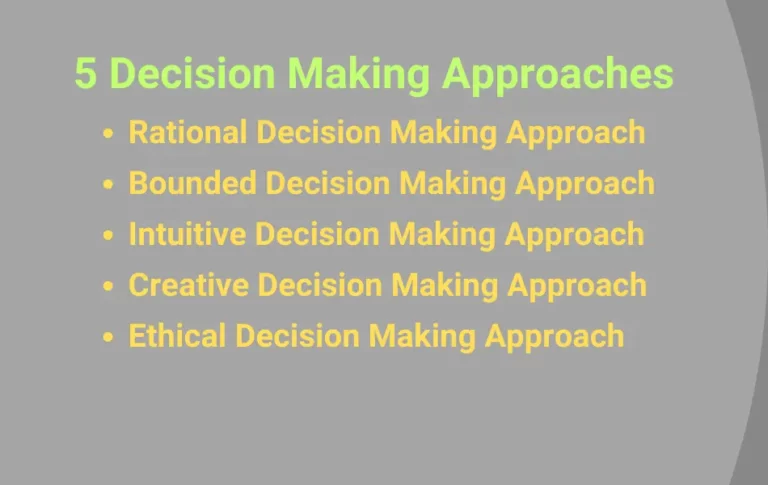Importance of Business Ethics You Need To Know In 2024 – Fully Explained

In today’s rapidly evolving business landscape, recognizing the critical importance of business ethics is essential. Unethical practices have left a lasting impact on the world, from corporate scandals that disrupt economies to eroding public trust in institutions. But what exactly do we mean when we talk about business ethics? Business ethics refers to the moral principles and values that guide organizational behavior and decision-making. It establishes the standards by which businesses operate, interact with stakeholders, and make choices that extend beyond the pursuit of profit. In this article, we will explore why embracing ethics is a moral obligation and a strategic imperative in today’s dynamic business world.
Content Outline
The Importance of Business Ethics – 2024

1. Reputation
- Definition and Overview: A business’s reputation often hinges on its ethical conduct. Companies known for their honesty, integrity, and ethical treatment of employees naturally attract more customers.
- Historical and practical examples: Patagonia has painstakingly built its reputation around ethical sourcing and environmental responsibility, resulting in a loyal customer base. How it enhances business: A strong reputation solidifies a company’s image, fortifies its brand, and positively contributes to its bottom line.
2. Customer Trust
- Definition and Overview: Consumer trust is a cornerstone of business success. Companies that uphold ethical standards are more likely to earn the trust of their customers.
- Historical and practical examples: Companies like TOMS, renowned for their One for One program, which matches every pair of shoes purchased with a new team for a needy child, have fostered considerable consumer trust through their ethically oriented initiatives.
- How it boosts business: Gaining customer trust leads to repeat business, the potential for referrals, and a potentially more significant market share.
3. Employee Loyalty
- Definition and Overview: Businesses that uphold ethical practices are more likely to retain employees. Employees prefer to work in environments where fairness, respect, and integrity are paramount.
- Historical and practical examples: Google, recognized for its outstanding workplace environment and fair treatment of employees, often cites its code of conduct as a driving force behind its high employee retention rate.
- How it boosts business: Employee loyalty can lead to increased productivity, lower turnover rates, and a more positive atmosphere within the company.
4. Financial Performance
- Definition and Overview: Evidence suggests that businesses prioritizing ethics tend to perform better financially in the long term.
- Historical and practical examples: The Ethisphere Institute’s annual list of the World’s Most Ethical Companies consistently demonstrates that these companies outperform their counterparts in the stock market.
- How it boosts business: Improved financial performance can lead to increased investment in the industry, more incredible innovation, and overall corporate strength.
In these sub-sections, business ethics serve as both a moral compass and a strategic tool for managing a thriving company. Ethics inspire trust, loyalty, and good business practices, underscoring their significance in the current business world.
Business Ethics in Decision-Making
Ethical considerations are pivotal in decision making, guiding us toward morally sound actions. They help maintain integrity, fairness, and social responsibility. We ensure transparency and build stakeholder trust by incorporating ethics into decision-making processes. Additionally, ethical considerations promote long-term sustainability and foster a positive organizational culture. Making ethical decisions is essential for the well-being of individuals, organizations, and society.
Examples of Unethical Business Practices
Historical Examples of Unethical Business Practices
Enron Scandal (2001)
Overview: Enron (scandal 2001), an American energy company, used accounting loopholes and unique purpose entities to conceal debt and inflate profits. Eventually, the company filed for bankruptcy, causing significant financial losses for investors and employees.
Unethical Practices: Enron engaged in accounting fraud, misleading investors and employees about the company’s financial health. They manipulated financial statements, evaded taxes, and violated ethical standards for personal gain.
Volkswagen Emissions Scandal (2015)
Overview: Volkswagen, a renowned German car manufacturer, was found to have installed software in diesel vehicles to manipulate emissions tests artificially. This scandal resulted in billions of dollars in fines and legal settlements for the company.
Unethical Practices: Volkswagen deliberately deceived regulators and customers by equipping vehicles with “defeat devices” to cheat emission tests and misrepresent the actual pollution levels of their cars.
Contemporary Examples of Unethical Business Practices
Wells Fargo Cross Selling Scandal (2016)
Overview: Wells Fargo, one of the largest banks in the United States, was involved in a scandal where employees opened millions of unauthorized customer accounts to meet sales targets. This unethical practice led to fines and damaged the bank’s reputation.
Corrupt Practices: Employees engaged in fraudulent activities by creating fake accounts without customers’ knowledge or consent. They falsified documents, manipulated customer information, and used unethical sales tactics.
Facebook’s Cambridge Analytica Data Scandal (2018)
Overview: Facebook, the social media giant, faced backlash when it was revealed that Cambridge Analytica, a political data firm, obtained and misused the personal data of millions of Facebook users without their consent. It raised concerns about privacy and data protection.
Unethical Practices: Facebook should have upheld user privacy and security by allowing third-party access to personal data with sufficient consent and oversight and not promptly addressing the issue.
It’s important to note that these examples highlight the actions of specific companies and should not be seen as representative of the entire business community. Nonetheless, they demonstrate the importance of ethical business practices and the potential consequences when ethics are compromised.
Implementation of Business Ethics
Step 1. Establishing a Code of Conduct
- Definition and Overview: A Code of Conduct is a written guideline that outlines the principles, values, standards, or rules of behavior for an organization.
- Importance: This document establishes clear ethical standards and expectations, references employees during ethical dilemmas, and helps uphold the company’s reputation.
- Practical Steps:
- Define the fundamental values of the company.
- Clarify the expectations of behavior in alignment with these values.
- Provide examples of potential scenarios for better understanding.
- Make it accessible to all employees.
- Regularly update it to reflect evolving societal norms and business practices.
Step 2. Employee Training and Awareness
- Definition and Overview: Employee training and awareness consist of workshops and training modules designed to educate employees about the company’s ethical expectations.
- Importance: Training ensures that employees understand what constitutes ethical behavior. It fosters awareness of potential ethical conflicts and dilemmas in their work.
- Practical Steps:
- Develop comprehensive training materials.
- Implement mandatory training sessions for all employees.
- Present real-life scenarios and possible solutions during training.
- Regularly update training materials to stay abreast of emerging ethical issues.
Step 3. Encouraging Communication and Reporting of Unethical Behavior
- Definition and Overview: Companies must establish clear channels for open communication and reporting ethical breaches.
- Importance: Encouraging communication fosters a safe and transparent environment, enabling employees to voice concerns without fear of retaliation.
- Practical Steps:
- Set up anonymous hotlines or digital platforms for reporting.
- Assure employees that reports will be confidential and that retaliation will not be tolerated.
- Communicate the process and outcomes of information to maintain trust in the system.
Step 4. Monitoring and Enforcement
- Definition and Overview: Monitoring and enforcement involve regularly evaluating company operations to ensure adherence to ethical standards and enforcing regulations when necessary.
- Importance: Monitoring and enforcement allow the company to identify and rectify ethical violations early, maintaining a high moral standard throughout the organization.
- Practical Steps:
- Conduct regular audits within the company.
- Develop a disciplinary system of ethical breaches.
- Implement changes based on audit findings to improve ethical standards continually.
These elements are crucial in effectively implementing business ethics, contributing to a more ethical, responsible, and successful organization.
Related: How to test business ideas
Challenges and Limitations of Business Ethics
While business ethics offer significant benefits and are essential for the success and sustainability of an organization, they also come with particular challenges and limitations. It’s critical to be aware of these factors to effectively navigate ethical dilemmas and ensure the implementation of a robust ethical framework.
Balancing Ethics with Profitability:
Challenge: One of the main challenges businesses face is finding the right balance between ethical practices and profitability. Sometimes, ethical decisions conflict with financial gains and organizations may be tempted to compromise their ethical standards in pursuit of higher profits.
Mitigation: Businesses can prioritize long-term sustainability over short-term gains to reduce this challenge. By adopting a stakeholder approach that considers the interests of all stakeholders, including customers, employees, suppliers, and the environment, businesses can align ethical practices with financial success.
Real-World Limitations of Implementation:
Implementing and enforcing ethical practices consistently throughout an organization can be challenging. It requires commitment from all levels of the organization, effective communication, resources, and monitoring mechanisms.
Mitigation: To tackle this challenge, businesses can establish a strong ethical culture that starts from top leadership and permeates the organization. This culture can be fostered through training programs, clear communication of ethical guidelines, and the integration of ethics into performance evaluations.
Ethical Dilemmas and Complexity:
Challenge: Ethical dilemmas can arise when businesses face conflicting moral principles or values. These dilemmas can be complex and require careful consideration and decision-making.
Mitigation: Companies can implement ethical decision-making frameworks such as the “Principles-Based Approach” or “Utilitarian Approach.” These frameworks guide navigating ethical dilemmas and help ensure consistent and moral decision-making.
External Pressures and Stakeholder Expectations:
Challenge: Businesses operate in a dynamic environment facing diverse stakeholder expectations and external pressures. These pressures can sometimes conflict and pose challenges for businesses to navigate ethically.
Mitigation: Businesses can address this challenge by actively engaging with stakeholders, understanding their expectations, and incorporating them into their ethical practices. Transparent communication and stakeholder dialogue can help manage conflicting pressures and align business actions with societal expectations.
Cultural and Legal Variations:
Challenge: Ethical standards and practices vary across cultures and jurisdictions. What may be considered righteous in one culture may not be in another, leading to challenges for businesses operating in multiple locations.
Mitigation: Businesses should develop a global code of ethics that respects each jurisdiction’s cultural nuances and legal requirements. Ensure firms are sensitive to diverse cultural perspectives while upholding universal ethical principles.
In navigating these challenges and limitations, businesses should approach ethical dilemmas with transparency, stakeholder engagement, and a commitment to long-term sustainability. By doing so, companies can enhance their ethical practices and reputation and contribute to a more responsible and ethical business environment.
Conclusion
In conclusion, the importance of business ethics must be balanced. Upholding ethical standards enhances a company’s reputation, builds customer trust, fosters employee loyalty, and contributes to long-term financial success. Businesses and individuals alike are responsible for prioritizing ethics in decision making, as it benefits the organization and promotes a more ethical and accountable business environment. Embracing the significance of business ethics paves the way for a more sustainable and prosperous future.






